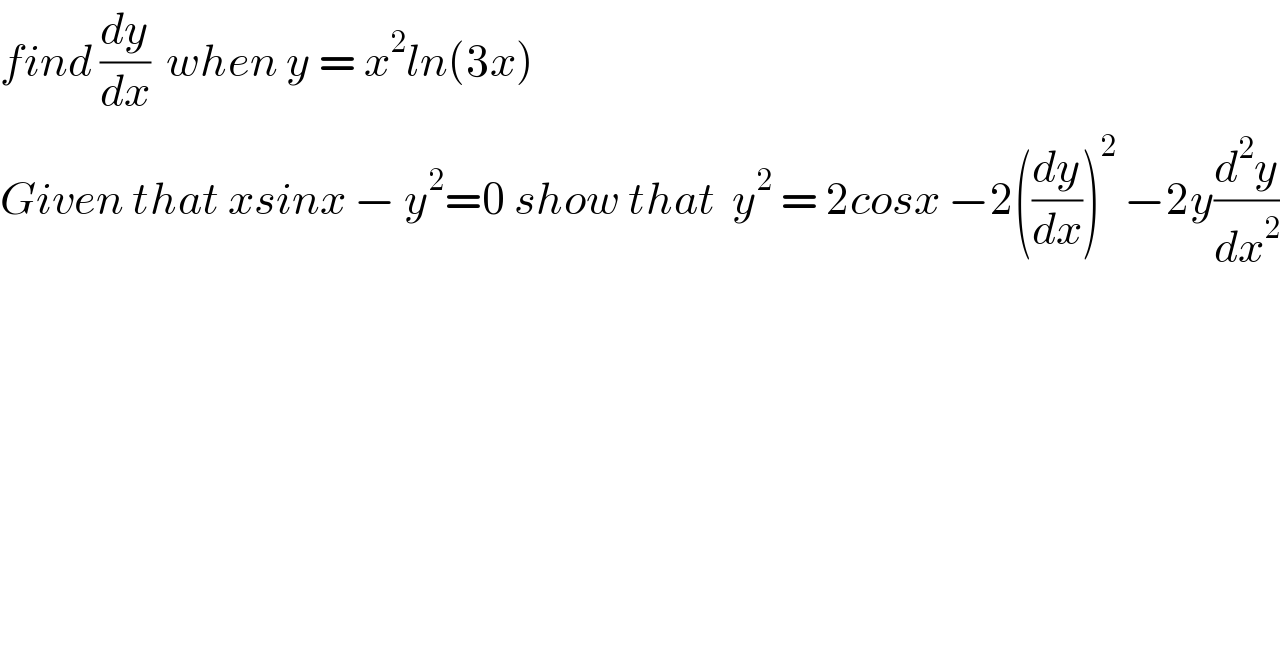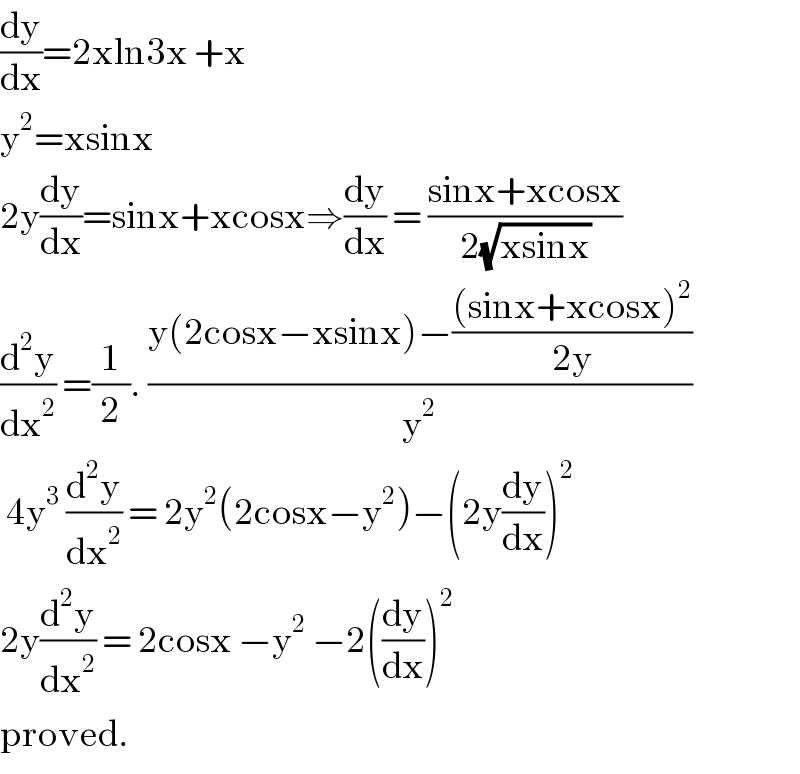
Question and Answers Forum
Question Number 66101 by Rio Michael last updated on 09/Aug/19

Commented by Prithwish sen last updated on 09/Aug/19

Answered by GordonYeeman last updated on 09/Aug/19

| ||
Question and Answers Forum | ||
Question Number 66101 by Rio Michael last updated on 09/Aug/19 | ||
 | ||
Commented by Prithwish sen last updated on 09/Aug/19 | ||
 | ||
Answered by GordonYeeman last updated on 09/Aug/19 | ||
 | ||
| ||